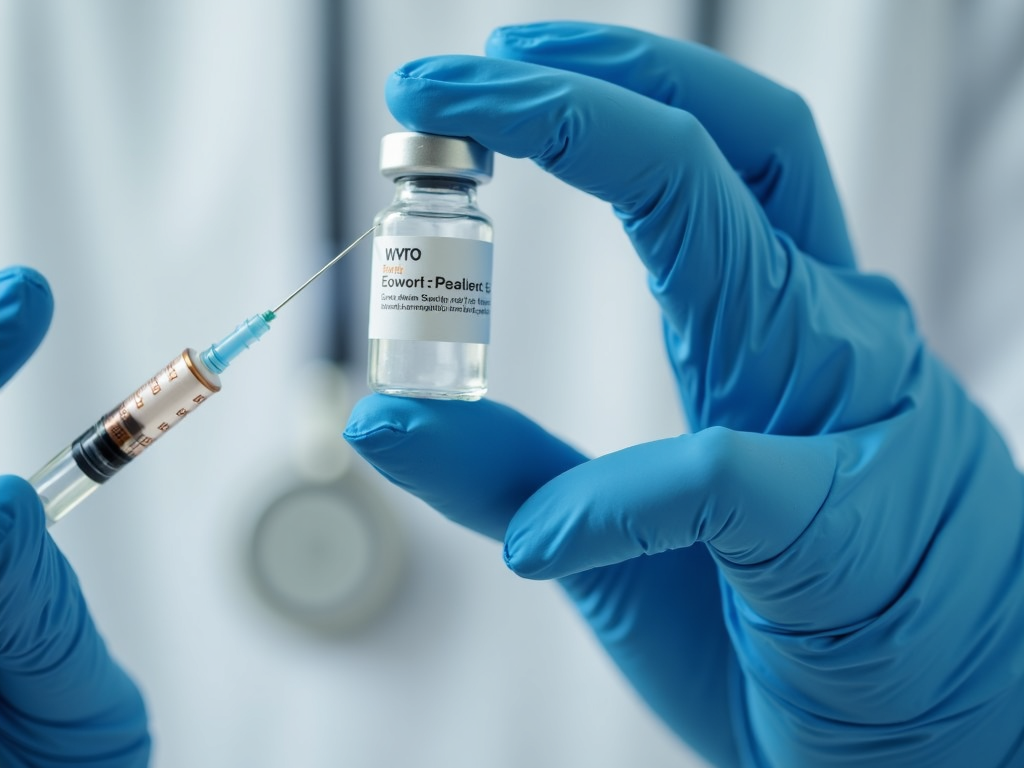Allergen immunotherapy is a game-changer for those battling chronic food allergies. But how does it work? Let's break it down.
Allergen immunotherapy, also known as AIT, is a treatment that involves exposing the body to small, controlled amounts of allergens. The goal is to desensitize the immune system, reducing or eliminating allergic reactions over time. This process is particularly beneficial for individuals with chronic food allergies, such as Food Protein-Induced Enterocolitis Syndrome (FPIES), a severe and often misunderstood condition.
FPIES is a type of chronic food allergy that primarily affects infants and young children. Unlike typical food allergies, FPIES reactions are delayed and can cause severe vomiting, diarrhea, and dehydration. Managing FPIES can be challenging, but allergen immunotherapy offers a promising solution.
To understand how allergen immunotherapy works, it's essential to grasp the basics of the immune system. When someone with a food allergy consumes an allergen, their immune system mistakenly identifies it as a threat. This triggers the release of histamines and other chemicals, leading to allergic symptoms.
Allergen immunotherapy aims to retrain the immune system. By gradually introducing tiny amounts of the allergen, the body learns to tolerate it without overreacting. This process involves several stages:
- Initial Phase: Small doses of the allergen are administered, often through injections or sublingual drops.
- Build-Up Phase: The dosage is slowly increased over time, allowing the immune system to adapt.
- Maintenance Phase: Once the optimal dose is reached, it is maintained to ensure long-term tolerance.
This gradual exposure helps the immune system build tolerance, reducing the severity of allergic reactions. For individuals with chronic FPIES, this can mean a significant improvement in quality of life.

One of the most compelling aspects of allergen immunotherapy is its potential to provide long-term relief. Unlike medications that only manage symptoms, immunotherapy addresses the root cause of the allergy. This can lead to lasting changes in the immune system, offering hope for a future free from allergic reactions.
Consider the story of Emily, a young girl diagnosed with chronic FPIES. For years, her family struggled to manage her condition, constantly fearing accidental exposure to trigger foods. After undergoing allergen immunotherapy, Emily's symptoms gradually decreased. Today, she can enjoy a wider variety of foods without the constant worry of a severe reaction.
While allergen immunotherapy is a powerful tool, it's not without its challenges. The treatment requires commitment and patience, as it can take months or even years to achieve full tolerance. Additionally, there is a risk of allergic reactions during the treatment process, which is why it's crucial to undergo immunotherapy under the supervision of a qualified healthcare professional.
It's also important to note that allergen immunotherapy is not a one-size-fits-all solution. The treatment must be tailored to the individual's specific allergies and medical history. For those with chronic food allergies like FPIES, working closely with an allergist is essential to develop a personalized treatment plan.

To further understand the effectiveness of allergen immunotherapy, let's look at some data. Studies have shown that immunotherapy can significantly reduce the frequency and severity of allergic reactions. For example, a study published by the American Academy of Allergy, Asthma & Immunology found that 85% of participants experienced a reduction in symptoms after undergoing immunotherapy for food allergies.
Here's a table summarizing the benefits of allergen immunotherapy for chronic food allergies:
| Benefit | Description |
|---|---|
| Long-term relief | Addresses the root cause of allergies, potentially providing lasting tolerance. |
| Improved quality of life | Reduces the need for strict dietary restrictions and fear of accidental exposure. |
| Reduced medication use | Decreases reliance on allergy medications, such as antihistamines. |
| Potential for complete desensitization | Some individuals may achieve full tolerance to the allergen. |
Despite its benefits, allergen immunotherapy is not without risks. Common side effects include mild reactions at the injection site, such as redness or swelling. In rare cases, more severe reactions can occur, which is why it's crucial to have the treatment administered by a trained professional.
For those considering allergen immunotherapy, it's essential to weigh the potential benefits against the risks. Consulting with an allergist can help determine if this treatment is the right choice. Additionally, staying informed about the latest research and advancements in immunotherapy can provide valuable insights.

In conclusion, allergen immunotherapy is a promising treatment for individuals with chronic food allergies, including FPIES. By gradually exposing the immune system to allergens, it can help build tolerance and reduce the severity of allergic reactions. While the treatment requires commitment and careful monitoring, the potential for long-term relief makes it a valuable option for many.
If you're interested in learning more about allergen immunotherapy and its applications, consider exploring the following resources:
Discuss Here